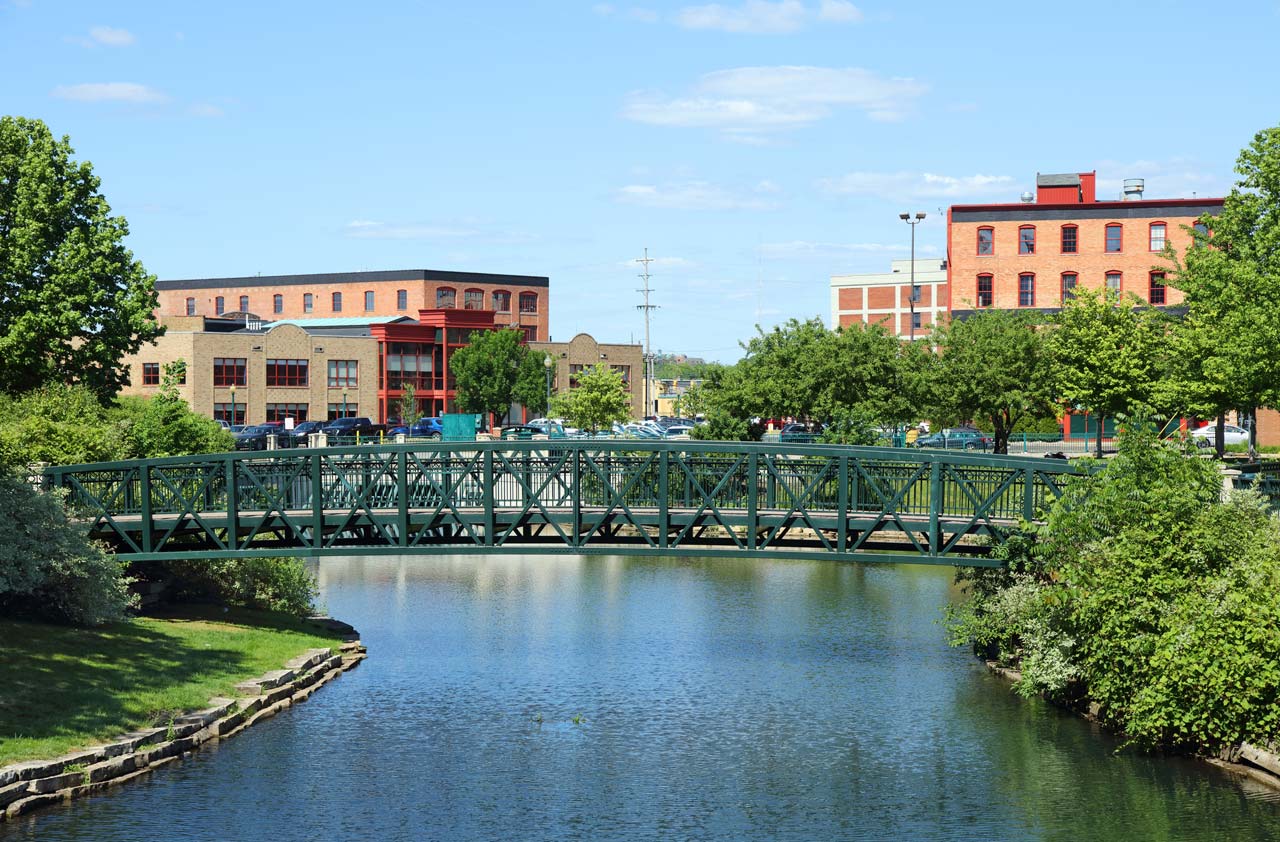First Apartment Checklist: Make the Most of Your Search
Atlanta Falcons linebacker and Kiplinger contributing editor Brandon Copeland discusses key factors to consider when searching for an apartment.


Profit and prosper with the best of Kiplinger's advice on investing, taxes, retirement, personal finance and much more. Delivered daily. Enter your email in the box and click Sign Me Up.
You are now subscribed
Your newsletter sign-up was successful
Want to add more newsletters?

Delivered daily
Kiplinger Today
Profit and prosper with the best of Kiplinger's advice on investing, taxes, retirement, personal finance and much more delivered daily. Smart money moves start here.

Sent five days a week
Kiplinger A Step Ahead
Get practical help to make better financial decisions in your everyday life, from spending to savings on top deals.

Delivered daily
Kiplinger Closing Bell
Get today's biggest financial and investing headlines delivered to your inbox every day the U.S. stock market is open.

Sent twice a week
Kiplinger Adviser Intel
Financial pros across the country share best practices and fresh tactics to preserve and grow your wealth.

Delivered weekly
Kiplinger Tax Tips
Trim your federal and state tax bills with practical tax-planning and tax-cutting strategies.

Sent twice a week
Kiplinger Retirement Tips
Your twice-a-week guide to planning and enjoying a financially secure and richly rewarding retirement

Sent bimonthly.
Kiplinger Adviser Angle
Insights for advisers, wealth managers and other financial professionals.

Sent twice a week
Kiplinger Investing Weekly
Your twice-a-week roundup of promising stocks, funds, companies and industries you should consider, ones you should avoid, and why.

Sent weekly for six weeks
Kiplinger Invest for Retirement
Your step-by-step six-part series on how to invest for retirement, from devising a successful strategy to exactly which investments to choose.
What's up, everybody? This is Brandon Copeland, aka Professor Copeland. You are now tuned into another episode of Cope'ing With Money.
Recently, I've been doing some research and I found that apartment searches tend to hit a low between November and April. Well, this happens for a few reasons. In northern states, most people don't want to be moving during the middle of a snowstorm, and across the country in general, most families don't want to move their children during the middle of a semester and no one wants to be moving during the middle of the holidays.
What this essentially means is that most people are looking to find new places to live outside of those months – in other words, right now.
From just $107.88 $24.99 for Kiplinger Personal Finance
Become a smarter, better informed investor. Subscribe from just $107.88 $24.99, plus get up to 4 Special Issues

Sign up for Kiplinger’s Free Newsletters
Profit and prosper with the best of expert advice on investing, taxes, retirement, personal finance and more - straight to your e-mail.
Profit and prosper with the best of expert advice - straight to your e-mail.
So of course, I thought it would be fitting to go over some things that you should consider as a renter, both to save money and help make your moving process as smooth as possible.
Previously on Cope'ing With Money, we talked about the real cost of buying your first house, so definitely check out that video if you have the time. But we needed to make sure that we provide some renter-specific tips as well. We've got to protect our renters. So let's dive right in.
The Benefits of Renting
So, first and foremost, why actually rent in the first place? Well, renting allows for increased mobility and flexibility as opposed to buying, and also requires less maintenance on behalf of the tenant. Renting also helps you build your credit, allowing for increased savings, and reduced debt if done correctly.
There's a lot to be excited about when renting a new apartment. But, as always, we want to make sure we're taking measures to safeguard ourselves.
It's easy to tour a beautiful apartment and fall in love at first sight. But after spending a few days living there you realize that the washer isn't working, the fridge isn't cooling, and there's a leak in the ceiling. If you're not careful, all of these things could be blamed on you.
It gets a little stressful quickly.
We want to make sure that we're taking the proper precautions to protect ourselves, our families, and ultimately, our money.
Know the Full Cost of Renting
So, when looking for an apartment in your price range, you need to make sure you're considering the full cost of securing a place.
Before moving in, you're going to be responsible for paying the security deposit and the first month's rent. And depending on your landlord, you could be required to pay last month's rent as well.
Plus, if you're using a realtor to aid you in your search, you'll typically pay them another month's rent or more as a broker's fee.
Even though the first and last month's rent is money you'd be paying anyway, and you should ultimately receive your security deposit back (so long as you leave the apartment in good condition), you want to be prepared for the large upfront cost before signing the lease.
Inspect Your Property
To ensure you do get your security deposit back, make sure you perform a moving inspection and complete a moving checklist. This means going through and checking the entire property, checking for damages on the walls, the floors, the ceilings, as well as making sure that all the goods and appliances in the home work as intended.
If your apartment is already furnished, you want to make sure you're on the same page as your landlord regarding what's already there and the actual condition of the furniture. If your landlord claims there was a rocking chair in the living room, and you swear there wasn't anything there when you moved in, that's going to make for an awkward conversation at the end of the lease when you want your security deposit returned.
It's good to take plenty of photos when you move in – specifically of anything that appears damaged. By texting or emailing these photos to yourself and your landlord, you'll create a dated account of the state of the apartment and be able to prove you're telling the truth should a conflict ever arise.
Consider Buying Renters Insurance
You should also consider getting renters insurance to protect your assets. Most landlords already require this, but if yours doesn't, then you definitely want to make sure that you get this for yourself, and here is why:
Most landlords have insurance over the entire property, the asset. That means if the roof goes bad or there's a leak in the ceiling, their insurance will help them cover it. However, if that ceiling leaks onto your beautiful flat-screen TV or your laptop that you need for work, then it could be on you to replace it.
Renters insurance covers events like this and helps replace your belongings in the event of damage or theft. Plus it's usually not too pricey, usually less than 15 bucks a month. And just the peace of mind you receive is likely worth the small additional cost.
So you've taken some steps to protect yourself before moving in, but now what are some things that we should be mindful of once we're actually a tenant?
Keep Up-to-Date on Rent Payments
Most importantly, we want to make sure that we're paying our rent on time. This is what keeps our credit in good standing, and no one likes to pay late fees.
Make sure you're keeping an accurate record of your rental payments. If there's ever any debate over whether or not you've paid, you want to have the receipts to prove it.
Although I own my own home, I'm typically renting in whatever city that I'm playing in. And so I make sure that I pay my rent via credit card or via ACH Direct Deposit from my bank account, so ultimately I always have that strong record of them pulling money from my account that they can never argue with.
Stay on Top of Maintenance
On top of this, we want to make sure we communicate any maintenance issues with our landlords immediately. Although we obviously hope there are none, we want to make sure that the landlord bears full responsibility for anything that's not our fault as the tenant.
Whether this is a door handle that you've been hitting with a vice grip that you done ripped out of the door, or this is a leaky pipe, or something that may have burst in the ceiling, reporting these things as they happen helps prevent them from festering and causing bigger problems. It also keeps you and your landlord on the same page regarding the cause of the accident or the incident and whose responsibility it is to fix it.
If you wait until the end of the lease to address this stuff, then one, you're creating a larger headache for your landlord, who probably won't appreciate it. And two, it becomes a lot tougher to claim that you didn't cause the problems or that you weren't aware of them when you've allowed them to rack up for this long.
Naturally, there are a lot of costs associated with fixing these things, and your landlord will likely look at your security deposit as a way to subsidize that cost. So, let's avoid that whole situation by making sure we get out in front of these issues simply by having that conversation.
Communicate With Your Roommates
Finally, if you're renting an apartment, there might be a chance that you're doing so with roommates. A lot of people choose to live with roommates, since splitting a multi-bedroom apartment is typically cheaper than renting a one-bedroom by yourself.
Make sure you're communicating with your roommates upfront, and that everyone's in agreement regarding the monthly payments and the condition you're trying to keep the apartment in. It's no good being left on the hook because someone you live with isn't paying their fair share, or having your security deposit compromised by an issue that you didn't even cause.
Some groups will divvy up the rent differently depending on the room size or pay different amounts in utility costs if usage varies between people. Whatever you and your roommates decide, you want to be sure that everyone knows what's expected of them and everyone's taking responsibility for their costs. This not only avoids money problems, but also ensures everyone feels comfortable and secure in their own homes.
These are just a few things to keep in mind when moving into your first apartment or even your second, third and so on and so forth. It's always nice to have a change of scenery, and by protecting ourselves financially, we can eliminate that stress and anxiety and enjoy these moments to the fullest.
As always, I appreciate you taking the time. Please make sure to share this video with your friends, families, and loved ones who may be moving into a place of their own soon, and visit kiplinger.com/cope to see more.
This has been another episode of Cope'ing With Money. As always, stay safe, stay blessed, and I'll see you next time.
Links and Resources Mentioned
Profit and prosper with the best of Kiplinger's advice on investing, taxes, retirement, personal finance and much more. Delivered daily. Enter your email in the box and click Sign Me Up.

Brandon Copeland, an active, eight-year veteran NFL linebacker, has spent the past two years teaching a class he created, and nicknamed “Life 101,” at his alma mater, the University of Pennsylvania. Life 101 focuses on life’s constant money decisions so that students are better prepared for the financial realities that adulthood brings. Copeland also spends time off of the field consulting and investing in real estate. He is the co-founder of a nonprofit organization, Beyond the Basics Inc., and was the recipient of the 2020 NFLPA Alan Page Community Award, the NFLPA’s highest honor given for extraordinary dedication to service, social justice and equality. He is a member of CNBC’s Financial Wellness Council and the NFL Players Inc. Advisory Committee. Copeland has interned for UBS and Weiss Multi-Strategy Advisers.
-
 Nasdaq Leads a Rocky Risk-On Rally: Stock Market Today
Nasdaq Leads a Rocky Risk-On Rally: Stock Market TodayAnother worrying bout of late-session weakness couldn't take down the main equity indexes on Wednesday.
-
 Quiz: Do You Know How to Avoid the "Medigap Trap?"
Quiz: Do You Know How to Avoid the "Medigap Trap?"Quiz Test your basic knowledge of the "Medigap Trap" in our quick quiz.
-
 5 Top Tax-Efficient Mutual Funds for Smarter Investing
5 Top Tax-Efficient Mutual Funds for Smarter InvestingMutual funds are many things, but "tax-friendly" usually isn't one of them. These are the exceptions.
-
 Should You Rent in Retirement?
Should You Rent in Retirement?Making Your Money Last Renting isn't right for all retirees, but it does offer flexibility, and it frees up cash.
-
 The "Real" Cost of Buying a Home
The "Real" Cost of Buying a HomeFeature Atlanta Falcons linebacker and Kiplinger contributing editor Brandon Copeland discusses the laundry list of extra costs involved in buying a home.
-
 4 Things Home Buyers Will Hate About Your House
4 Things Home Buyers Will Hate About Your HouseFeature Know what could kill a sale before it does.
-
 3 Small Towns That Are Full of Millionaires
3 Small Towns That Are Full of MillionairesFeature Where the rich live to avoid the hustle and bustle of big cities.
-
 3 Cheapest Places to Live in the U.S.
3 Cheapest Places to Live in the U.S.Feature The cost of living is super-low in these three cities.
-
 3 Cities You Probably Can't Afford to Live In
3 Cities You Probably Can't Afford to Live InFeature High cost of living puts these places out of reach for most would-be homebuyers and renters.
-
 3 Cheapest Big Cities in America
3 Cheapest Big Cities in AmericaFeature Small towns don’t have a monopoly on low living costs.
-
 Are Tiny Homes Right for Retirees?
Are Tiny Homes Right for Retirees?Feature There are good reasons to downsize to a tiny house in retirement.